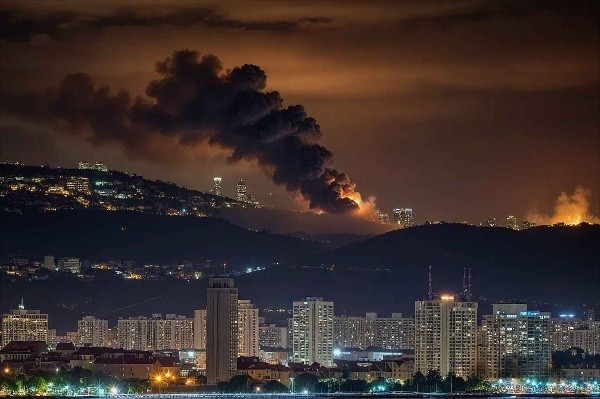Iran’s Plan to Strike Back Against the U.S.
Iran’s Military Preparations Following U.S. Attacks
Loading...

Suhail Hussein Husseini reportedly killed as Israel continues to target Hezbollah’s chain of command.
Targeting Hezbollah's Leadership
In a significant escalation of its military operations, the Israeli military has announced the killing of Suhail Hussein Husseini, a senior commander of Hezbollah, during an airstrike in Beirut. The Israeli army confirmed the strike on Tuesday, stating that Husseini, who led Hezbollah's headquarters, was targeted as part of ongoing efforts to dismantle the group's command structure. This operation is part of Israel's broader strategy to weaken Hezbollah's military capabilities and disrupt its operations.
Strategic Importance of Husseini
Husseini's role within Hezbollah was critical; he was reportedly involved in the logistics of weapons transfers from Iran to Hezbollah and was responsible for distributing smuggled arms among various units within the organization. Additionally, he oversaw the budgeting and planning of Hezbollah's most sensitive military projects, including orchestrating attacks against Israel from both Lebanon and Syria. The Israeli military characterized Husseini's death as a significant blow to Hezbollah's operational capabilities, marking it as a continuation of their campaign against the group's leadership since the outbreak of hostilities last year.
Ongoing Conflict and Casualties
Since the onset of the conflict following the Hamas-led attack on Israel on October 7, 2023, Israel has intensified its military actions against both Hezbollah and Hamas. The Israeli military has claimed to have successfully targeted numerous high-ranking officials within Hezbollah, including the recent airstrike that killed long-time leader Hassan Nasrallah. In the past few months, several other senior commanders have also been killed, including Ibrahim Qubaisi, Ibrahim Aqil, and Ahmed Wahbi, further destabilizing the group's command structure.
Despite these losses, Hezbollah's deputy leader, Naim Qassem, asserted that the group remains resilient and that its military capabilities are intact. He acknowledged the pain caused by Israeli strikes but emphasized that the leadership is functioning effectively.
Escalating Tensions and Regional Implications
The conflict has raised concerns about a potential regional war, particularly involving Iran, which supports Hezbollah. Since the beginning of the conflict, exchanges of fire have occurred along the Israel-Lebanon border, with both sides launching attacks. Recently, Israel has shifted its focus from Gaza to its northern border, conducting ground incursions into Lebanon and targeting Hezbollah infrastructure.
On the same day as Husseini's reported death, Hezbollah launched a series of missile attacks on northern Israel, prompting air raid alerts in several areas. The Israeli military has not reported any immediate casualties or damage from these attacks, but the situation remains tense.
Future Outlook
As the conflict continues, Hezbollah has indicated plans to escalate its military operations against Israel, with Qassem stating that more Israelis would be displaced from their settlements. The Iranian government has also reiterated its commitment to retaliate against any Israeli attacks, further complicating the regional dynamics.
The ongoing military actions and the targeting of key figures within Hezbollah suggest that Israel is determined to weaken the group's influence and operational capabilities. However, the resilience shown by Hezbollah and the potential for broader regional conflict underscore the precarious nature of the situation in the Middle East. As both sides prepare for further confrontations, the international community watches closely, hoping for a resolution to the escalating violence.
Editor
Iran’s Military Preparations Following U.S. Attacks
Troops remain in five strategic locations, raising fears of renewed tensions and long-term occupation.
Opposition forces have taken control of the capital after a significant offensive. Here is how it unravelled.
